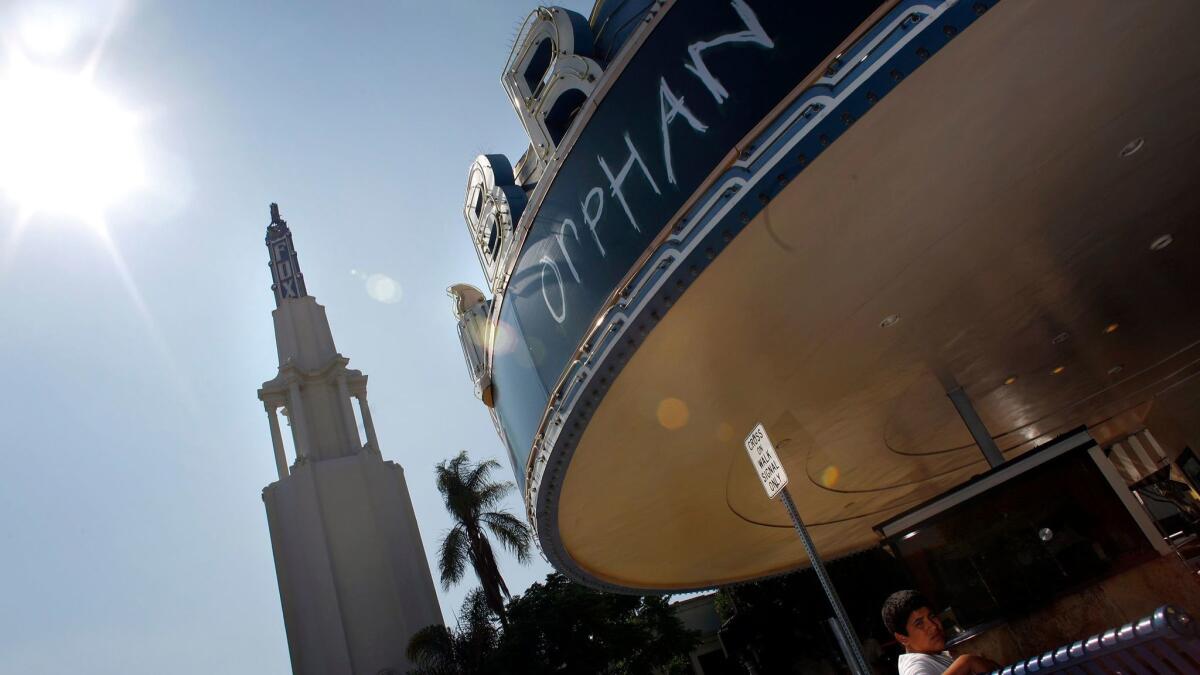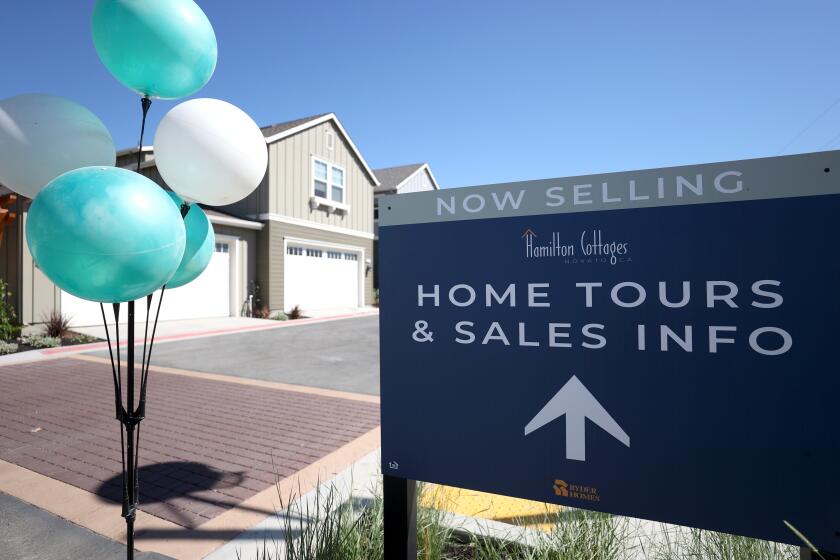Westwood is once again California’s priciest spot for renters, study finds

For the second straight year, Westwood — a Los Angeles neighborhood filled with students — is California’s most expensive place to rent an apartment.
In the posh Westside neighborhood’s 90024 ZIP Code, renters pay an average of $4,944 a month, according to a new study from RentCafe, a listing service for apartments and homes. That’s a 4.1% leap compared with last year.
At $4,944, Westwood rent ranks fourth in the country behind three areas in Manhattan. It’s also nearly $50 higher than the second priciest spot in California: West Hollywood’s 90048 ZIP Code, where the average rent is $4,896.
Right now, one-bedroom apartments with 744 square feet in the Legacy at Westwood Apartments start at $3,757 per month and range up to $6,659. For a bit more space, a 1,129-square-foot apartment in the Wilshire Victoria costs $6,095 per month.
“It’s the basic economics of supply and demand,” said Doug Ressler, manager of business intelligence at Yardi Matrix, a real estate research firm. “Westwood has been starved of new supply, so there are no competitive price reductions.”
He added that the neighborhood is pricier than everywhere in the Bay Area because of demographics. Westwood is home to many affluent millennials who prefer the flexibility of renting one- or two-bedroom apartments as opposed to the permanence of a home, while San Francisco has larger populations of lower- and middle-class renters.
Although Ressler expects rents to continue to rise across L.A., he said Westwood is a prime spot for new development because of its available land and laxer zoning restrictions compared with the Bay Area. The effect wouldn’t be immediate, but more apartments would eventually lead to lower rent.
Westwood is best known as the home of UCLA. The data arrive as more students are applying to the university, but fewer are getting in.
In fall 2016, the school reported 97,121 applications and 17,474 admissions for an admission rate of 18%. A year later, 102,242 applied and 16,456 were accepted for an admission rate of 16%.
Last fall, 113,761 applied and 15,970 were admitted for a decade-low rate of 14%.
Other draws to the neighborhood include the shopping and dining hub Westwood Village, as well as the area’s proximity to Interstate 405 and Interstate 10, a boon to young professionals.
Raul Garcia-Gomez, a UCLA senior studying biology, stayed in the dorms his first two years before heading off campus. The only thing he could afford was a shared room, so he split a studio apartment with two roommates.
Rent was $2,200; then they had to move out when their landlord raised it to $2,400.
“It’s ridiculously expensive to live here,” said Garcia-Gomez, who works part time to afford the shared space. “I have friends up in Davis who have a house for the same price we’re paying for our place.”
The rent report, which used July data from Yardi Matrix to analyze the cost of about 15 million apartments of all sizes in more than 130 U.S. markets, found that California populated the list with 18 of the top 50 ZIP codes. The Bay Area claimed 12 spots, and Metropolitan Los Angeles added six.
In addition to Westwood and Mid-Wilshire, there’s Culver City’s 90232 ZIP Code at $4,118, Marina del Rey’s 90292 ZIP Code at $3,804, Santa Monica’s 90401 ZIP Code at $3,787 and Playa Vista’s 90094 ZIP Code at $3,735.
All of L.A.’s entries on the list rose year-over-year except for one: Playa Vista, where the average rent fell by 0.6%.
New York was most prominent on the list with 28 of the top 50 spots. Massachusetts featured four.
On Tuesday, Gov. Gavin Newsom signed a bill that will cap annual rent hikes at 5% plus inflation and protect renters from eviction without cause. The legislation will go into effect on Jan. 1 and last for a decade.
The Times recently reported that landlords are already exploring ways to evade the new rules, such as more frequent rent raises and quickly handing out no-fault eviction notices to tenants who pay low rent or make frivolous requests.
More to Read
Sign up for Essential California
The most important California stories and recommendations in your inbox every morning.
You may occasionally receive promotional content from the Los Angeles Times.







